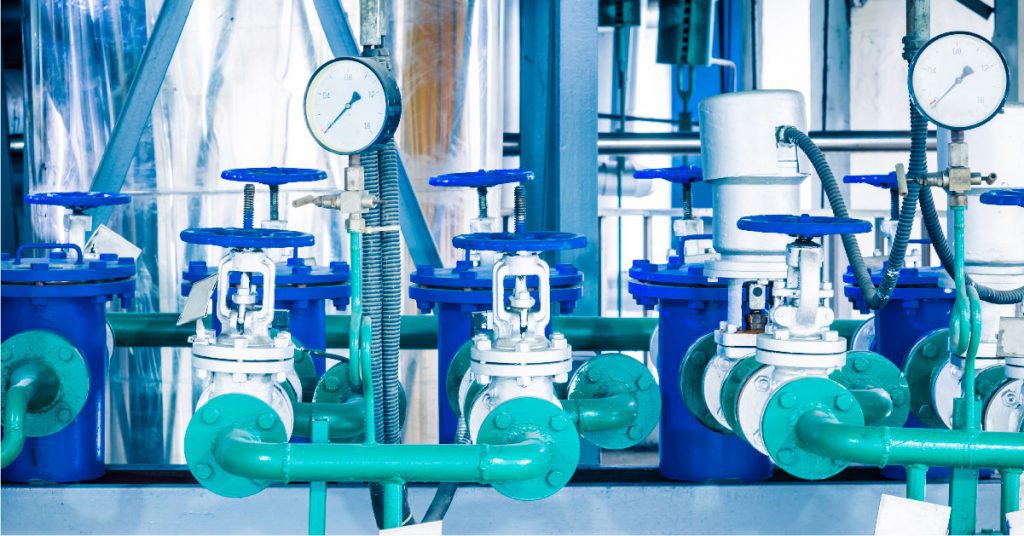Water quality plays a critical role in various industrial processes, and using the right type of water can significantly impact efficiency, equipment lifespan, and overall productivity. Demineralized water, free from dissolved salts and impurities, is becoming increasingly vital across industries in Kenya. This blog explores the advantages of demineralized water, answers the question, “Is demineralized water the same as distilled water?” and discusses “What is the pH of demineralized water?” to clarify its properties and applications.
What Is Demineralised Water?
Demineralized water (DM water) is water that has undergone a purification process to remove dissolved minerals, salts, and ions. Techniques such as ion exchange, reverse osmosis, or distillation are commonly used to produce demineralized water. Its high purity makes it suitable for applications requiring water with minimal conductivity and no scaling properties.
Demineralized water is essential for industries that rely on precise chemical reactions, non-corrosive environments, and high-quality outputs.
Is Demineralised Water the Same as Distilled Water?
While both demineralized and distilled water are types of purified water, they are not the same. The key differences lie in the production processes and purity levels:
1. Production Process
- Demineralized Water: Produced using ion exchange, reverse osmosis, or other deionization methods.
- Distilled Water: Produced by boiling water and condensing the steam, leaving impurities behind.
2. Purity
Demineralized water may still contain some organic contaminants if not treated further, while distilled water is often free from both organic and inorganic impurities.
3. Applications
Demineralized water is widely used in industries like power generation, pharmaceuticals, and manufacturing, while distilled water is commonly used in laboratories and medical settings.
Understanding these distinctions is crucial when choosing the right type of water for specific industrial applications.
What Is the pH of Demineralised Water?
The pH of demineralized water typically ranges between 6.0 and 7.0. In theory, pure water has a neutral pH of 7.0, but in practice, demineralized water absorbs carbon dioxide from the air, slightly lowering its pH to around 6.0. This minor acidity is not harmful in most industrial applications and can be controlled if needed.
Benefits of Demineralised Water in Industries
Kenya’s industrial sector is expanding, and the demand for high-quality water is growing. Demineralized water offers several benefits that make it a preferred choice for industrial processes:
1. Prevention of Scaling and Corrosion
Dissolved salts like calcium and magnesium can cause scaling in pipes, boilers, and machinery. Demineralized water eliminates these minerals, reducing scaling and extending the lifespan of the equipment.
2. Improved Efficiency
In industries like power generation, where steam turbines are used, even small impurities in water can affect performance. Demineralized water ensures optimal efficiency by preventing deposits and maintaining smooth operations.
3. Reduced Maintenance Costs
Using demineralized water minimizes wear and tear on equipment caused by mineral buildup, reducing the frequency of maintenance and associated costs.
4. Enhanced Product Quality
Industries such as pharmaceuticals, food and beverage, and electronics require water of high purity to ensure consistent product quality. Demineralized water meets these stringent requirements.
5. Safe Chemical Reactions
In chemical manufacturing, impurities in water can interfere with reactions, leading to undesirable byproducts. Demineralized water provides a stable and predictable medium for chemical processes.
6. Environmentally Friendly
By using demineralized water, industries can reduce the use of harsh chemicals for cleaning and descaling, contributing to more sustainable operations.
Applications of Demineralised Water in Kenya
The versatility of demineralized water makes it indispensable in several industries:
1. Power Plants
Demineralized water is used in boilers and cooling towers to prevent scaling, corrosion, and energy losses.
2. Pharmaceuticals
High-purity water is essential for manufacturing medicines and maintaining sterile conditions.
3. Electronics
The production of semiconductors and microchips requires water with minimal conductivity, making demineralized water a key component.
4. Food and Beverage
Used for cleaning, dilution, and as an ingredient, demineralized water ensures product safety and taste consistency.
5. Automotive
In battery manufacturing and radiator systems, demineralized water prevents damage caused by mineral deposits.
Importance of Demineralised Water in Kenya
Kenya faces challenges such as water scarcity and variable water quality in certain regions. By using demineralized water, industries can:
- Optimize resource use by recycling and reusing treated water.
- Ensure compliance with stringent environmental and quality standards.
- Contribute to sustainable development through efficient water management practices.
Ion Exchange: Shaping Kenya’s Water Purification Landscape
Ion Exchange offers a comprehensive range of water treatment plants, including standard packaged, industrial, and custom-built solutions for boiler and cooling water treatment. At the core of their approach is demineralization, a process that removes inorganic salts from water, making it suitable for industrial use. This high-flow system is designed to treat turbine and process condensate in thermal, nuclear, and process industries. Using strong acid cations and strong base anion resins, the system effectively converts dissolved salts into acids and removes them, ensuring high-quality demineralized water.
- INDION New Generation Swift Softener
- INDION Layer Bed Anion and Cation System
- INDION Elegant
- INDION Swift 5GX
- INDION Swift Plus Demineralizer
- INDION New Generation: Two-Bed Deionisers with Degasser Tower
Conclusion
Demineralized water has become an essential resource for various industries in Kenya due to its high purity and multiple benefits. From industrial processes to healthcare, energy production, and food and beverage manufacturing, demineralized water plays a critical role in ensuring optimal performance, reducing costs, and promoting sustainability.
Connect with Ion Exchange specialists today to explore tailored water treatment solutions.


